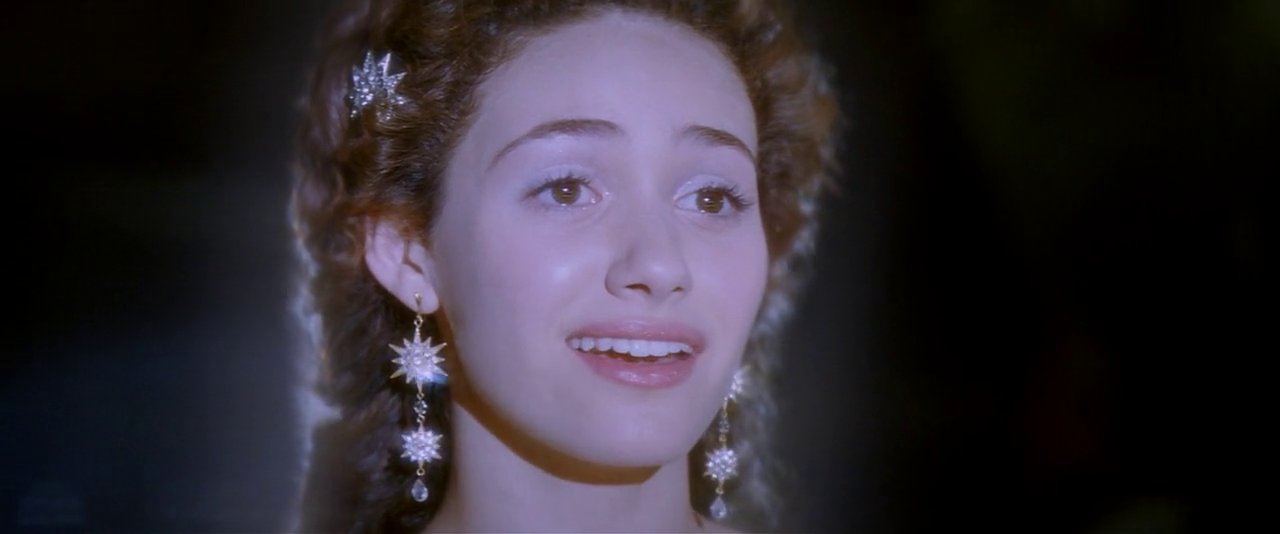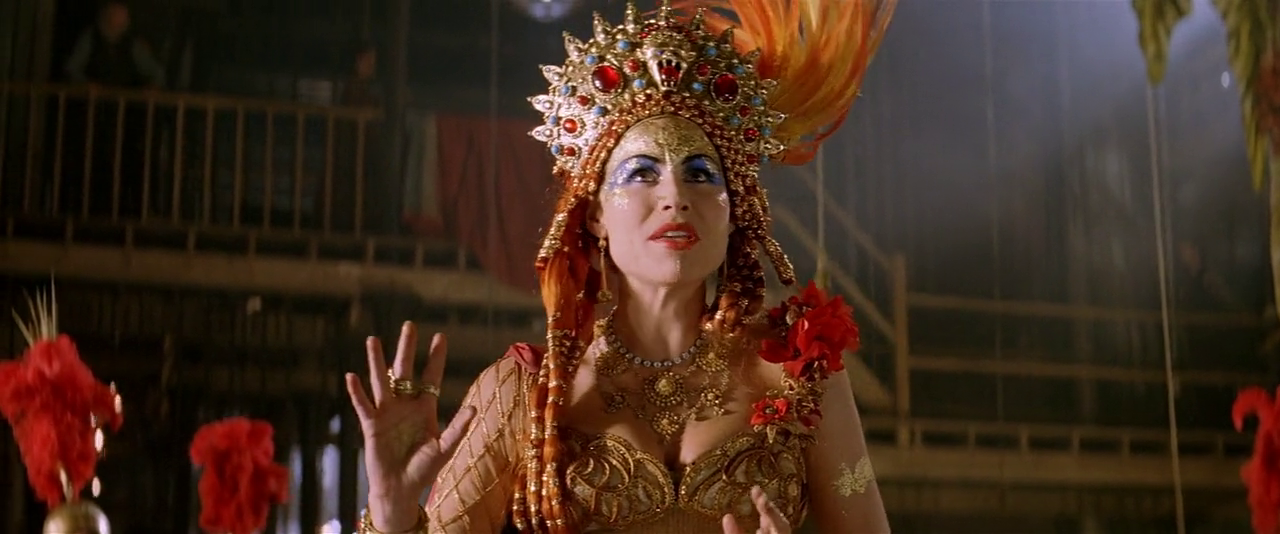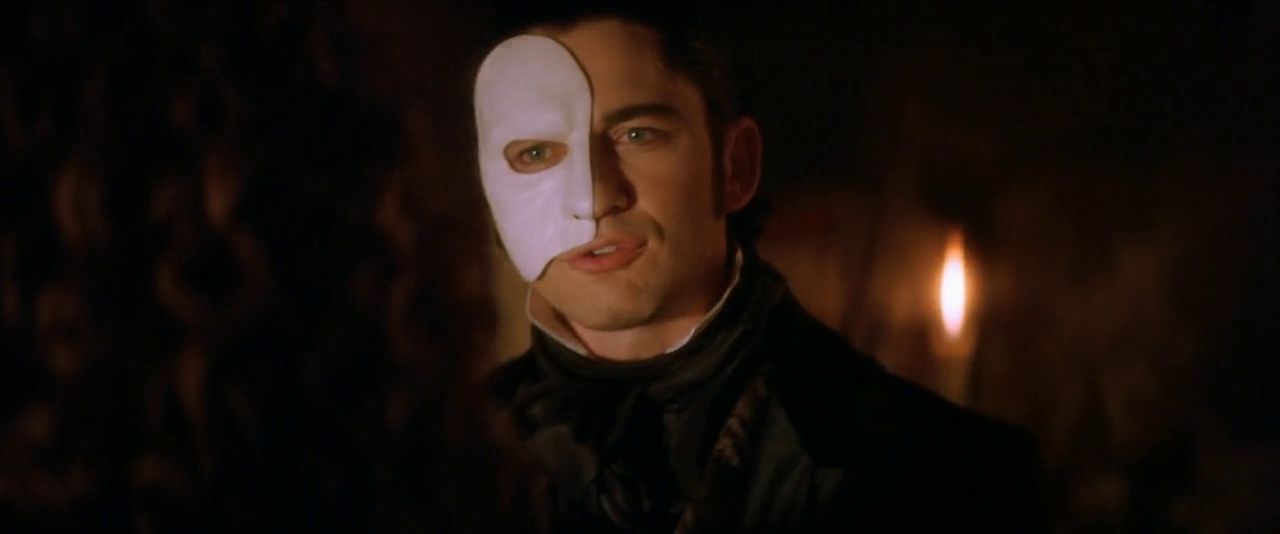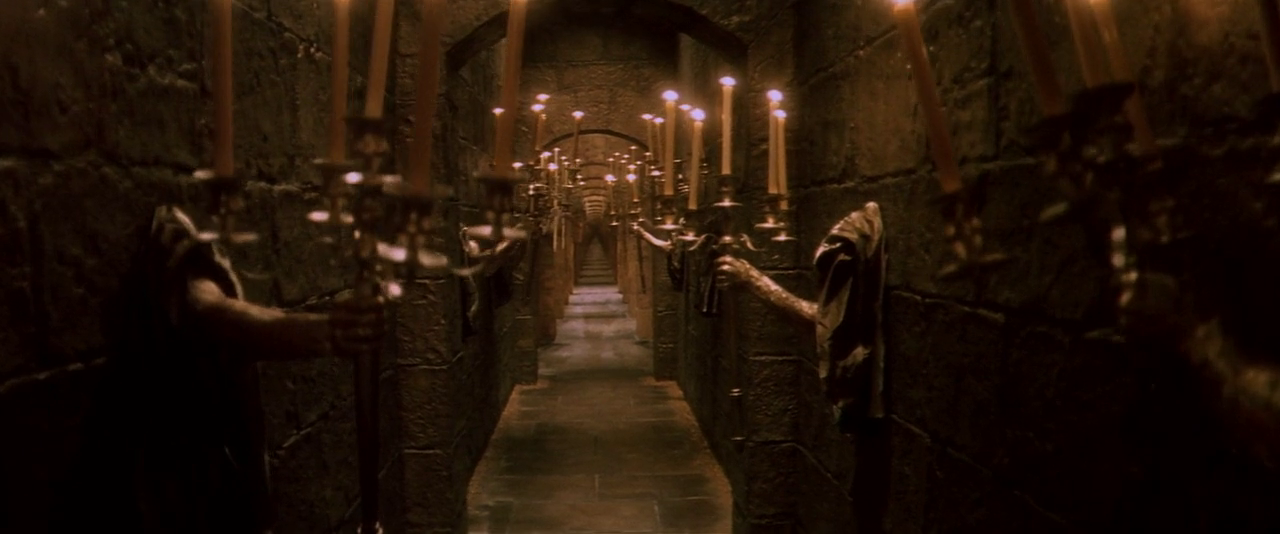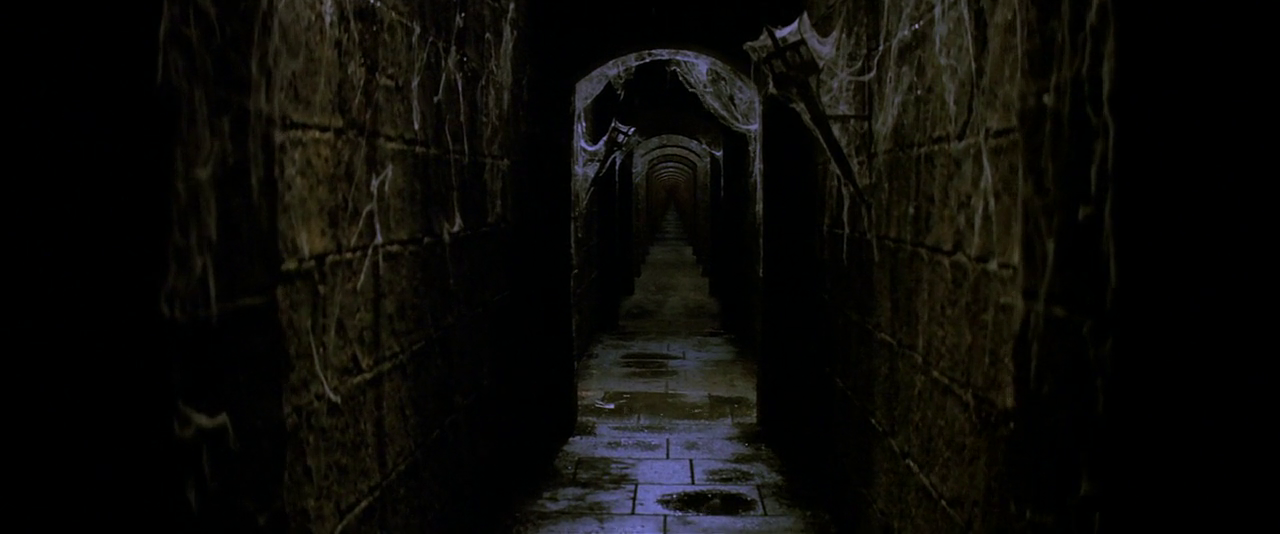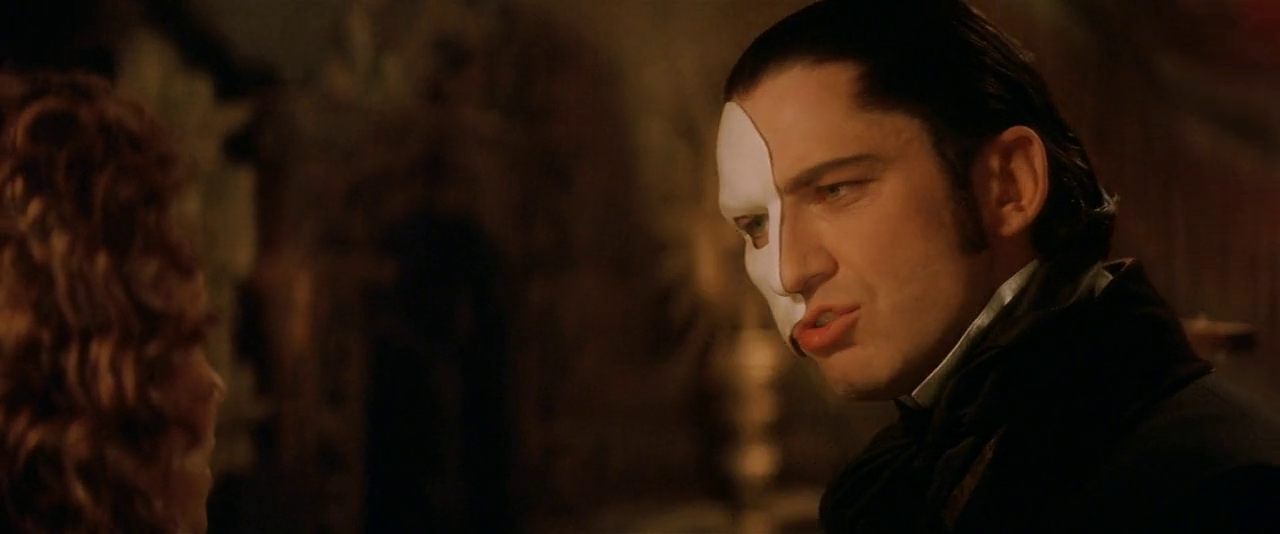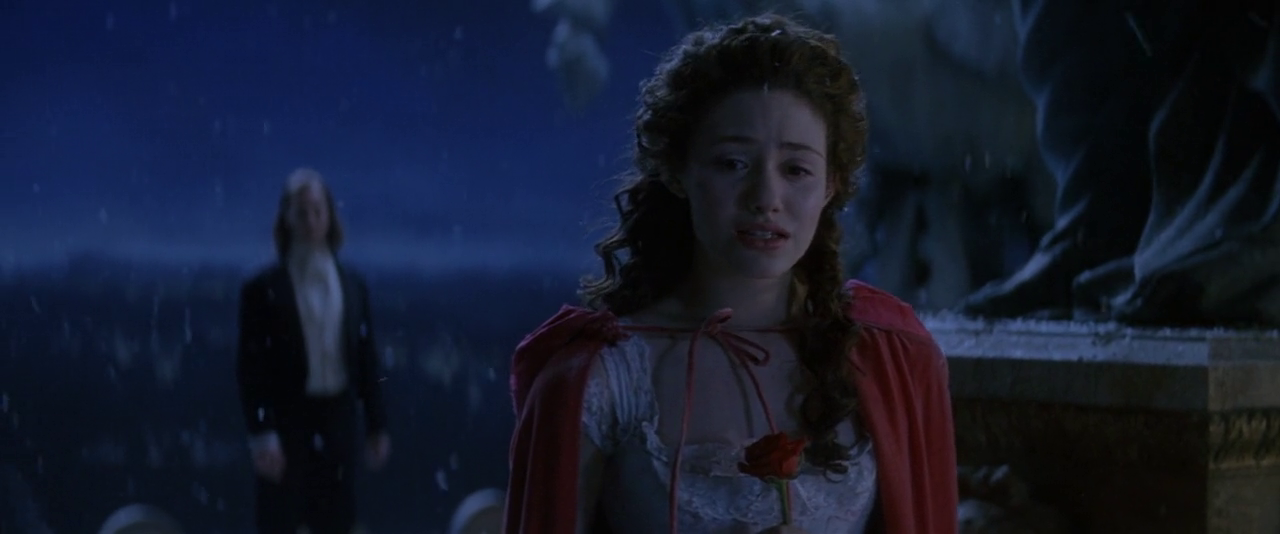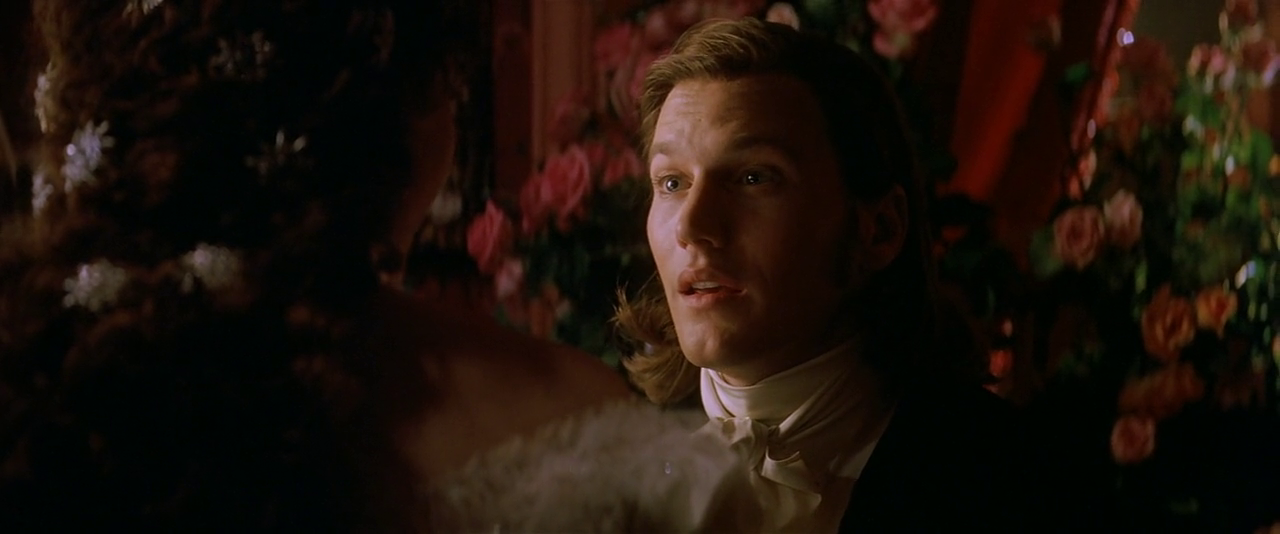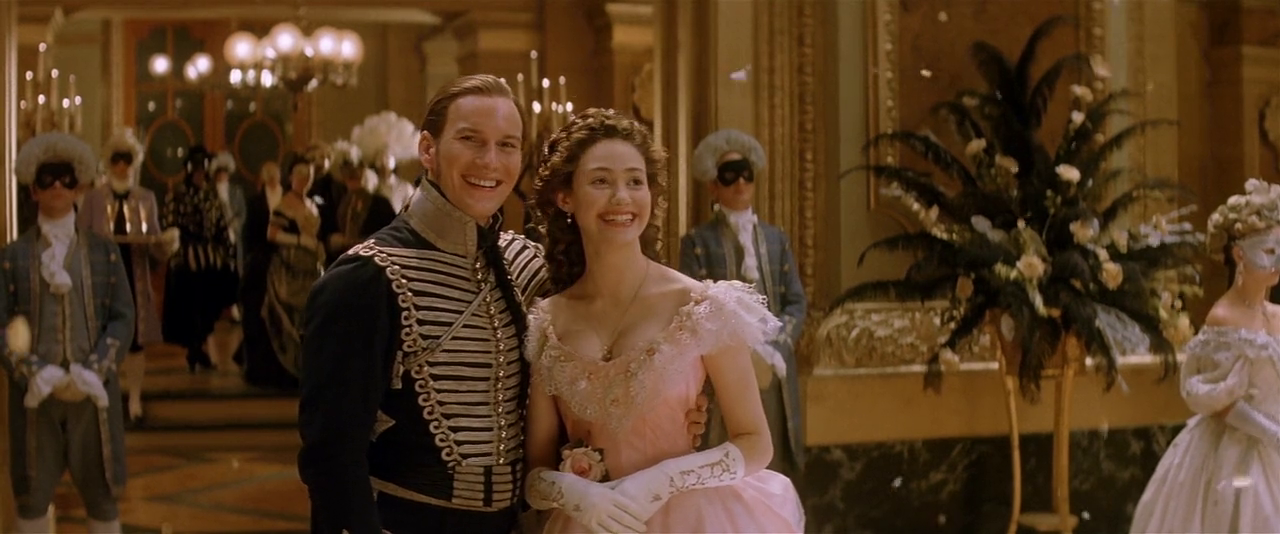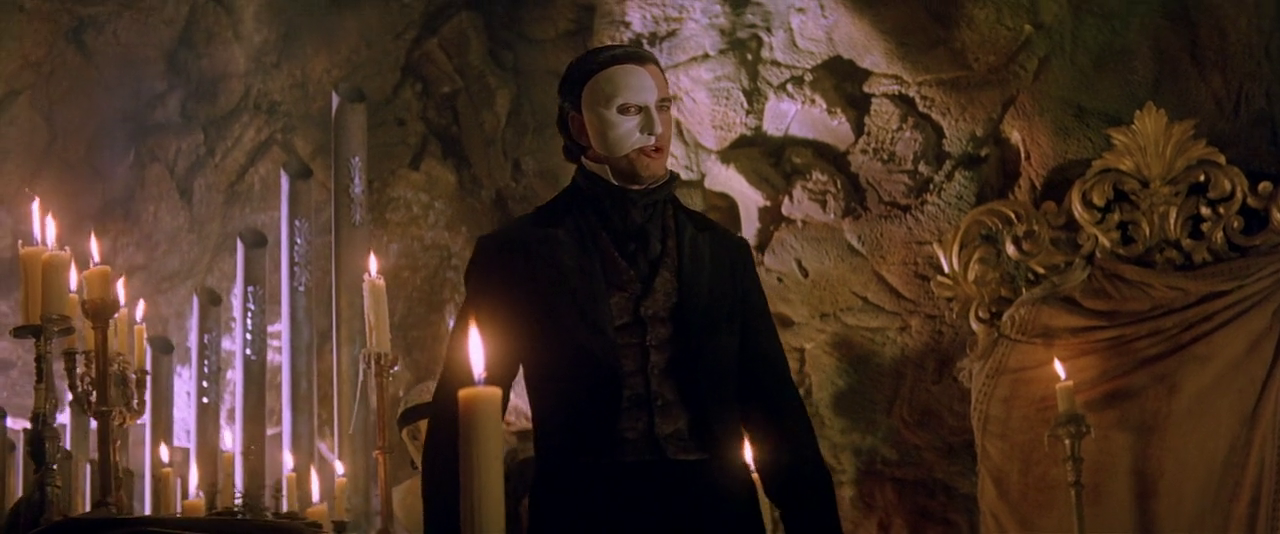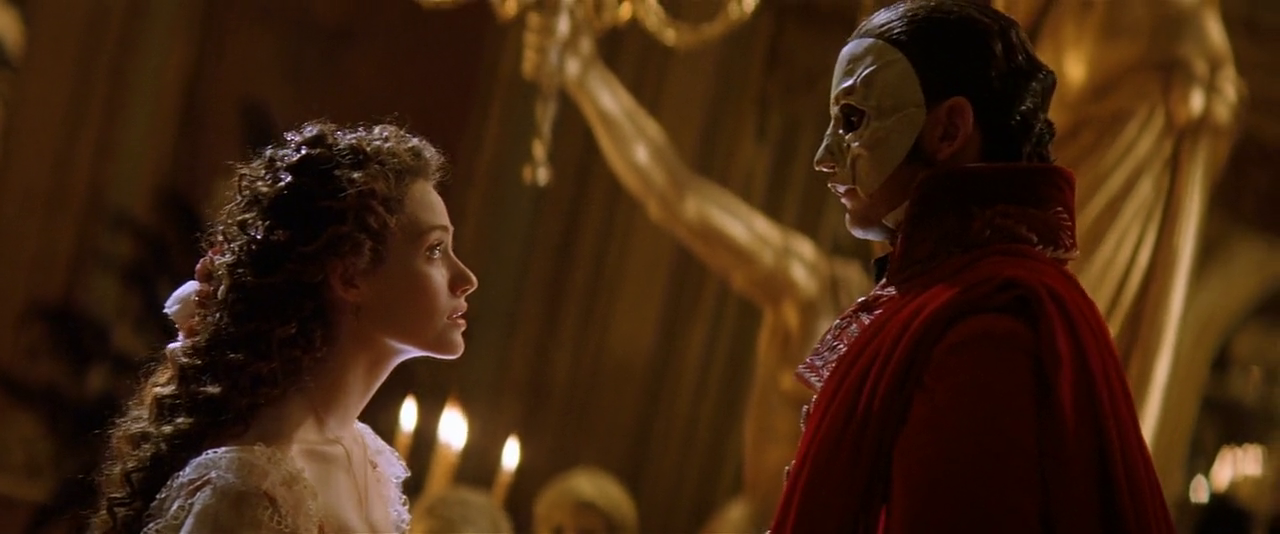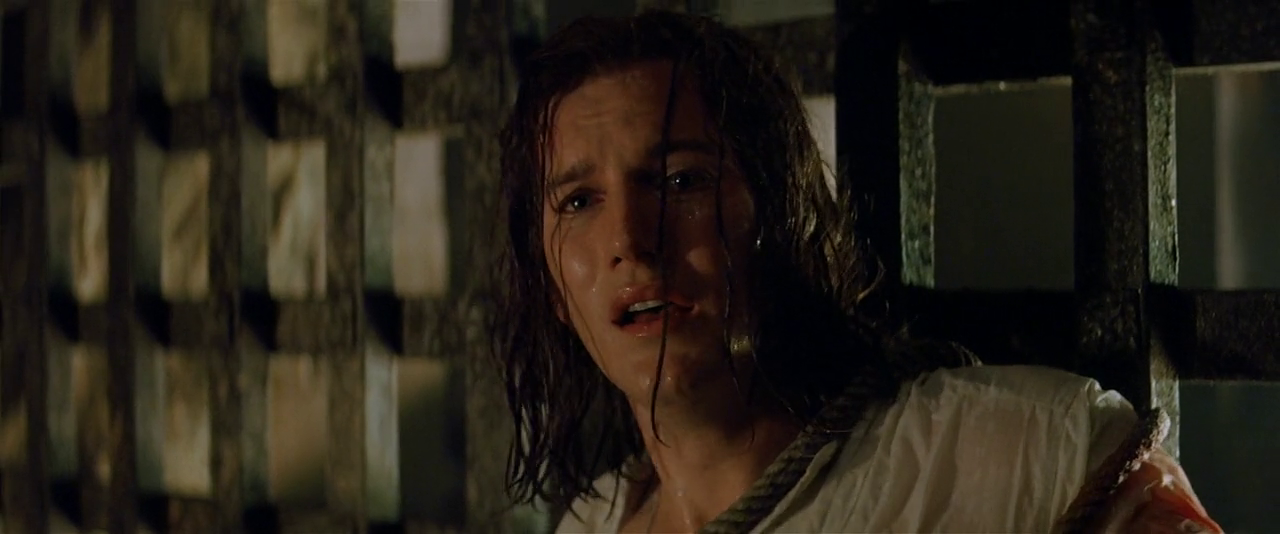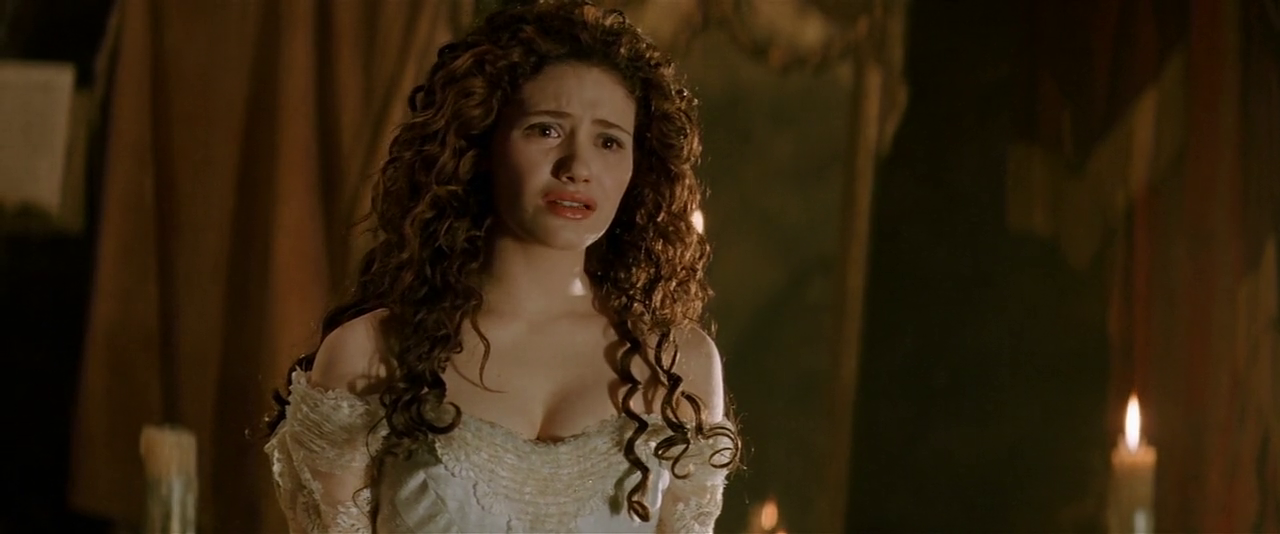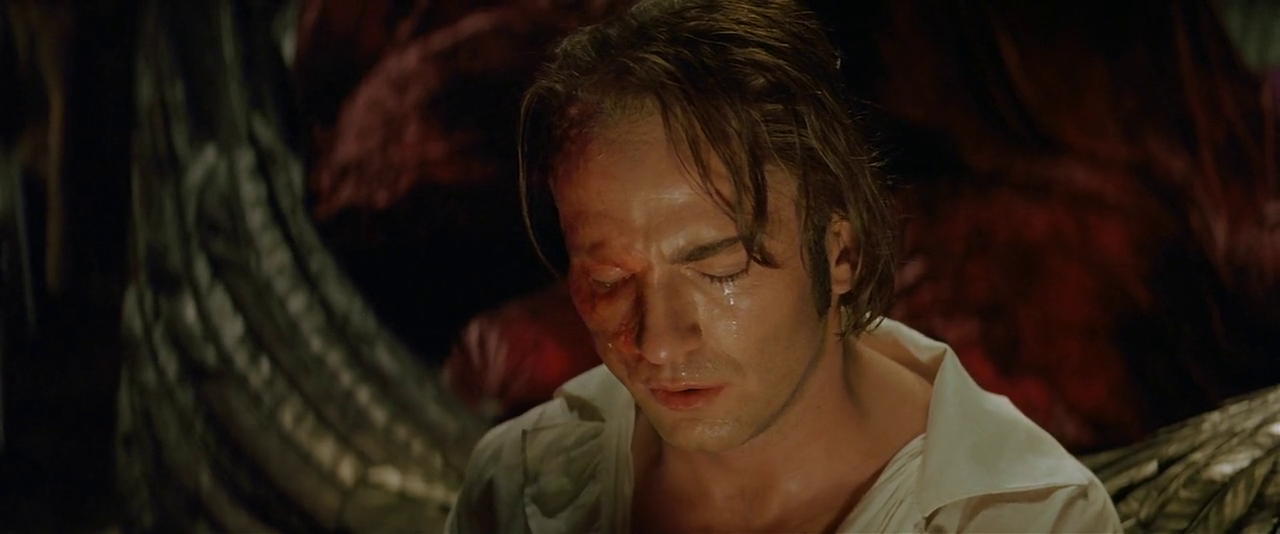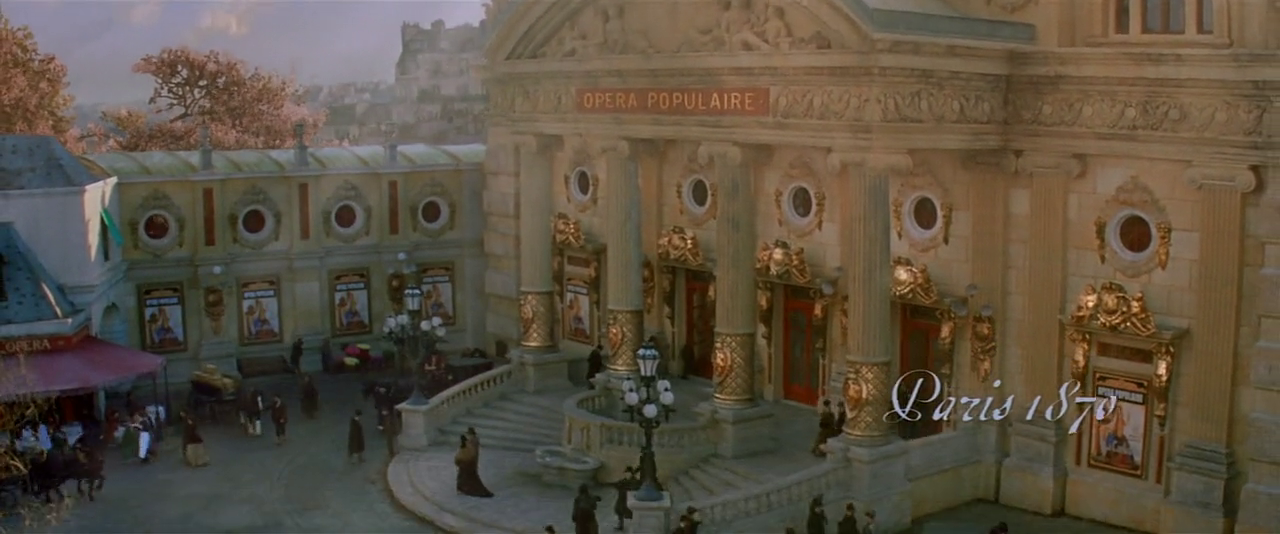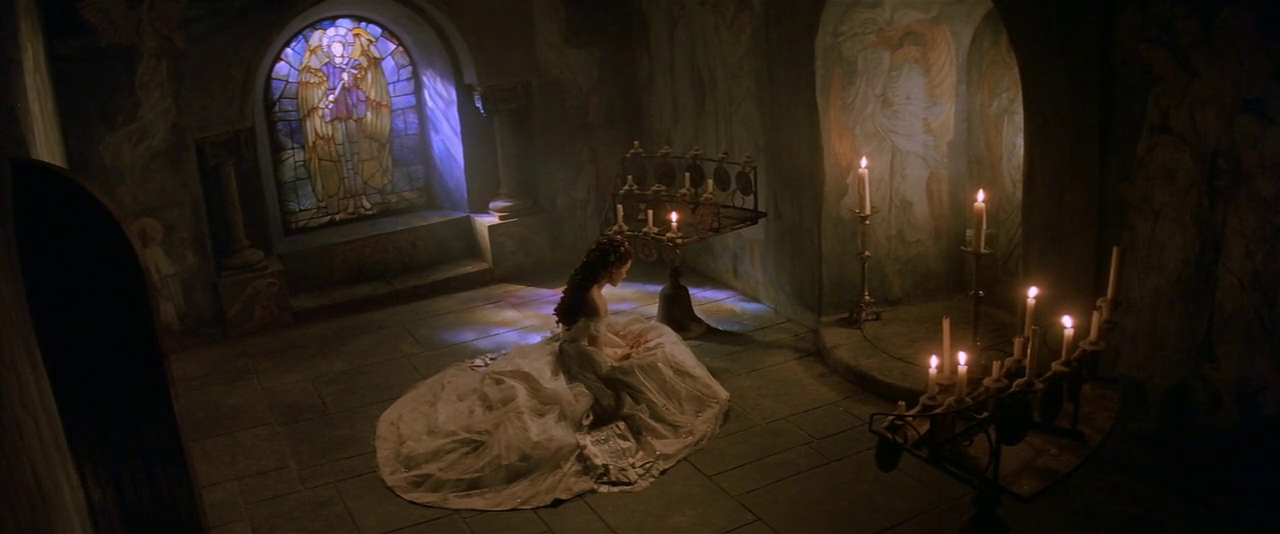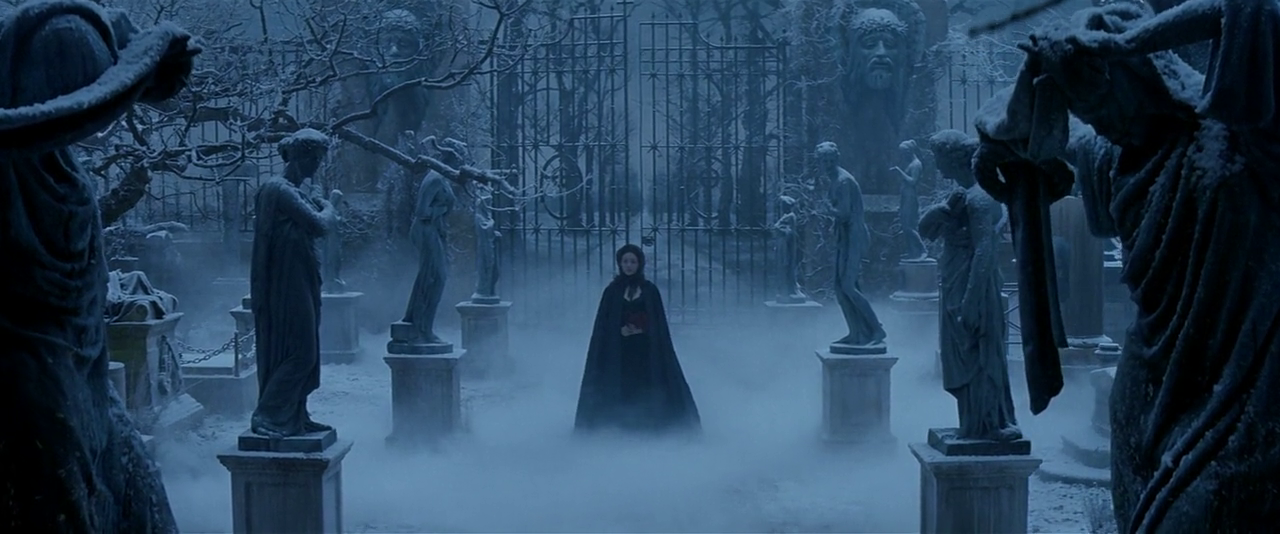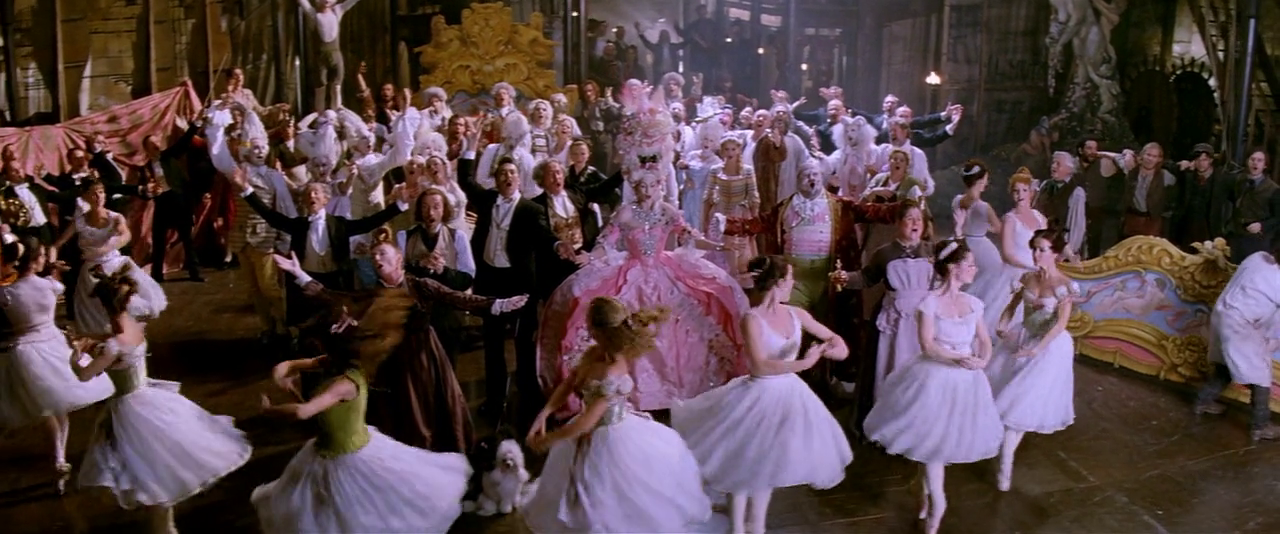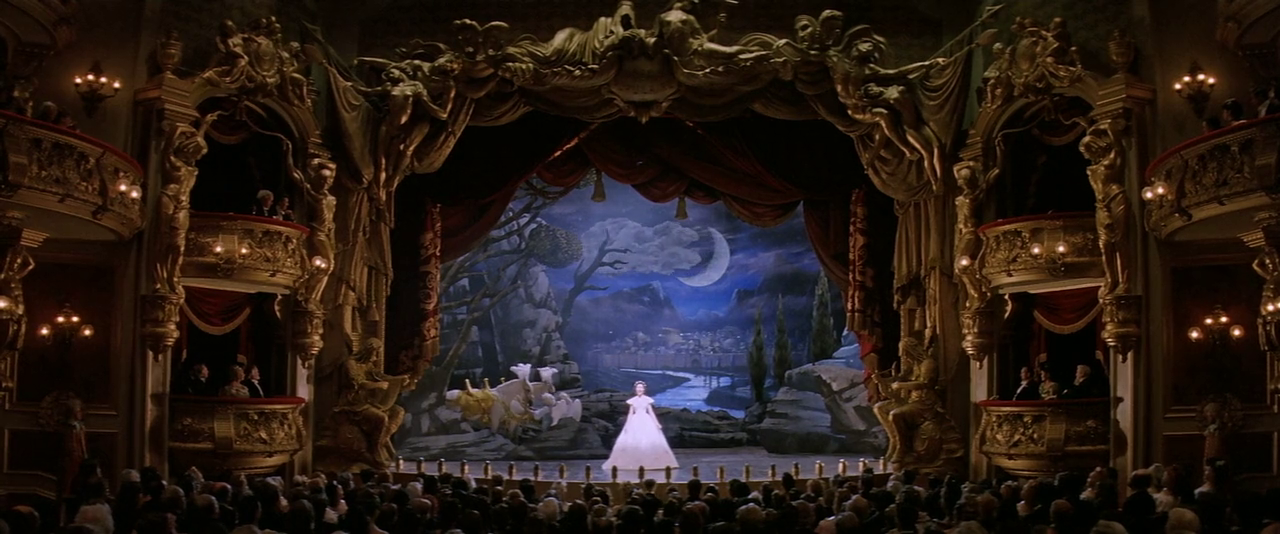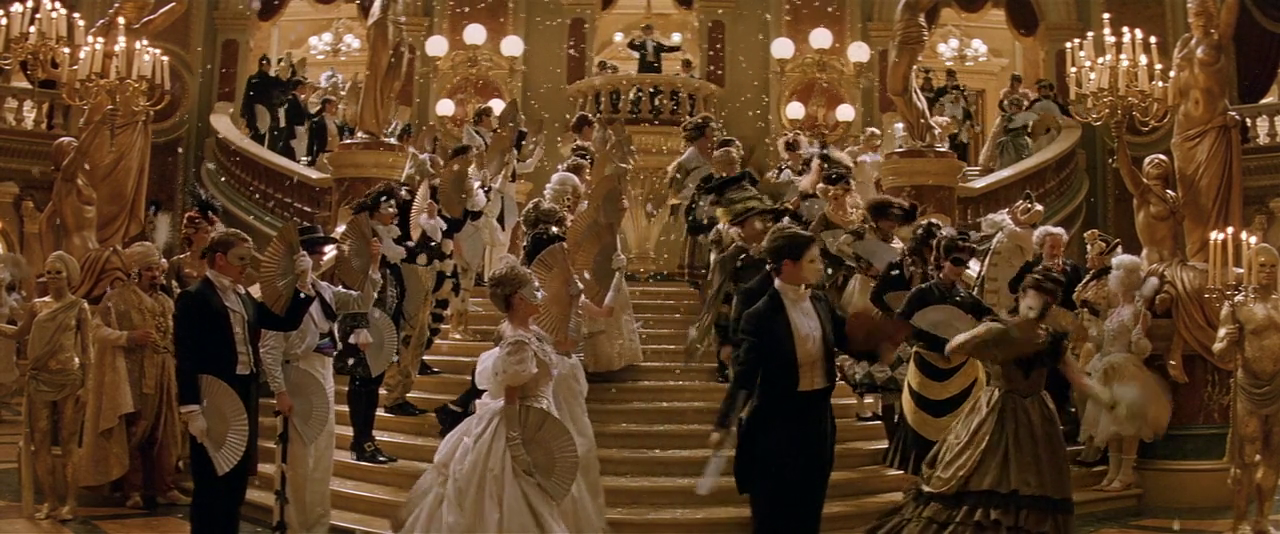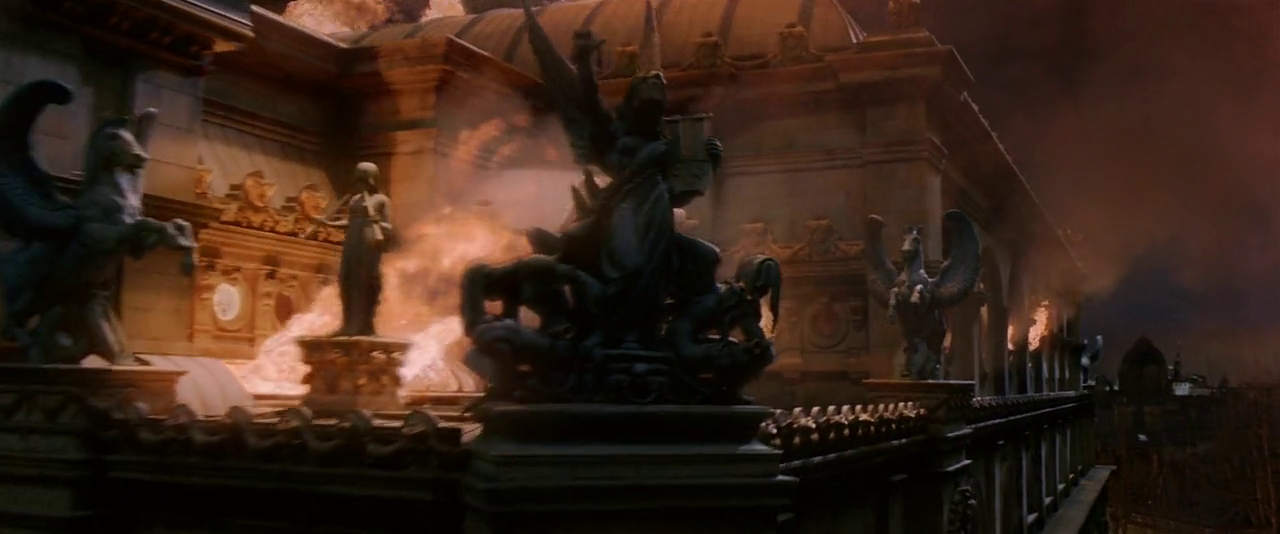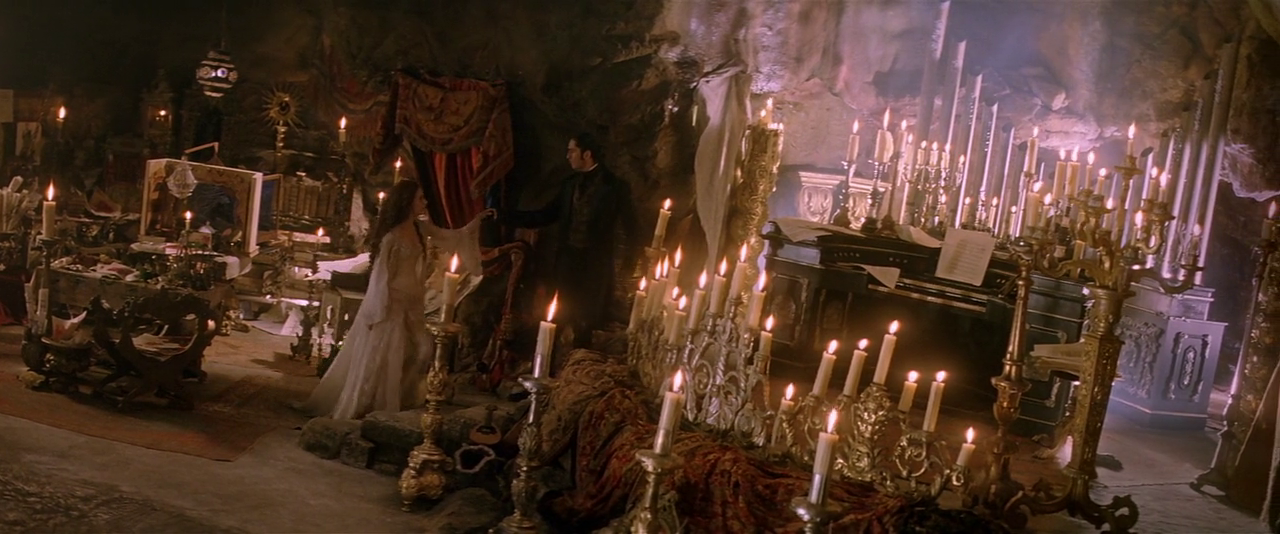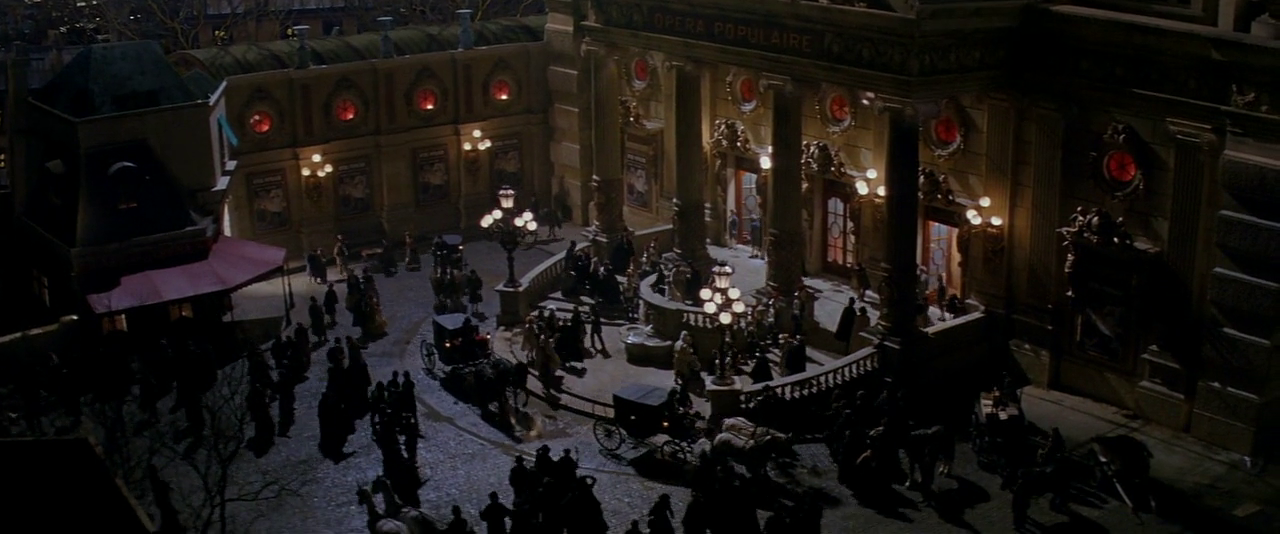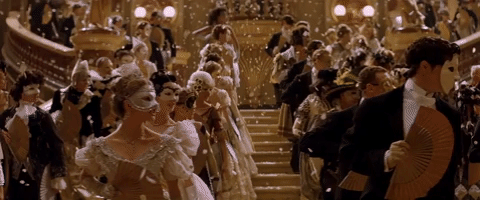The Phantom of the Opera (2004)
written by: Andrew Lloyd Weber and Joel Schumacher
starring: Gerard Butler, Emmy Rossum, Patrick Wilson, Miranda Richardson, Simon Callow, Ciaràn Hinds, and Minnie Driver
What’s magical about live theatre is the thin line between reality and unreality inherent in the art. The best theatrical productions understand this— you’re sitting in a real place watching real people with your own real eyes, but you’re seeing fake characters in fake circumstances, in locations that are abstract and heightened. Movies have some of this quality too, but these days movies are often either too real or too fake, and so lose that miraculous gray area. The best theatrical experiences play with that balance of real and unreal, and I think the best movies do that too. When I first saw Joel Schumacher's 2004 adaptation of The Phantom of the Opera (in a movie theatre, mind you, with my mom), I had not yet seen the show onstage. A year later a tour would come through D.C., and I would see it at the National Theatre. I still have not seen Phantom on Broadway, though I want to. In 2004, I thought the movie was too gaudy, too extravagant, and that the singing wasn't good enough. The magic of seeing the tour was the marvel of the music, which is repetitive but catchy and occasionally very beautiful. Since then, I have watched the 25th Anniversary staged concert, which stars beautiful singers and is gorgeously staged. I have also come to appreciate extravagance in my art.
So to return to this movie-- which is truly gaudy, truly extravagant, truly luscious and rich and golden. It is a movie of unbelievably heightened visuals and emotions. I think my 2004 opinion that the singing isn't the best remains true, but otherwise my perspective on gaudiness has certainly changed.
Because I'm not kidding when I say that it's a gorgeous movie. It's so visually stunning, so visually evocative and resonant, you could spend your whole life in it, like a champagne bubble bath. It's bubbly, effervescent, light and airy and delightful in all the ways you’d want.
You want to talk about a marriage of substance and style? This is it. Joel has not filmed a stage musical, or made a stagey movie-musical— he has taken the purest elements of the stage and translated them to film. This is a theatrical movie, in the style only Kenneth Branagh makes any more. It is wholly large, bold, and spectacular. Spectacular in the sense that it is a spectacle. It is a luscious, luxurious visual marvel, from its opening flicker of candle light to the stunning crash of the chandelier. Every element is boldly drawn with a thick impasto of velvet and gold. Every actor is beautiful, and so beautifully filmed that they literally glow. This is the height of unreality, which is the pinnacle of what theatre is capable of.
It is also couched and framed in reminiscence. The framing device of the musical (unnecessary on stage) here allows for everything to be touched with a rose tint— we see the story through Raoul's remembrance of tales told and wonders lived. Thence, when things are unbelievable, it is the Fantasia of memory that allows it to be so. Thus Christine's journey to the Phantoms lair is a marvel of moving arm-candelabrum and golden light, where Megs same journey reveals a dusty and frightening crypt. It is through the magic of the movies and the gauzy structure of memory that we can have both, and Joel does it seamlessly and with a swooping lack of shame. Nothing is done by halves, for it were, the delicate balance of the magic trick, of the spell that carries us in a whirlwind, would be broken. It must be extravagant, or else it would be ridiculous. It must be high romance on a roof in the snow, or else it is foolish.
The movie opens in a grainy sepia tone, an auction of the detritus of an abandoned opera. But, as the saying goes, perhaps we can frighten away the ghosts of so many years ago with a little illumination-- and suddenly, beautifully and with a serious amount of dramatic wind, up comes the light, up comes the color! The opera comes back to life in a rush, wind blowing away years of dust and decay, the hallways and dormitories filling with people and activity. New owners arrive, Monsieurs André and Firmin (Simon Callow and Ciaràn Hinds, so charming, so funny, and very good singers!), and with them we sweep through the theatre into an ongoing rehearsal. Minnie Driver swans in as the star soprano, Carlotta, with the most camp this side of a Maine lake. Is there a more iconic line delivery than her sneering, "Theese tings do 'appen? Well, until theese things stahp 'appening, this ting, does! not! 'appen!!"? Enter Christine (Emmy Rossum, only eighteen and doing very nice work), a chorus girl with a beautiful voice, being tutored by a mysterious teacher-- bum, bum bum-- it's the opera ghost aka the titular Phantom of the Opera (Gerard Butler, not a singer!). The last piece of the puzzle is the Viscount Raoul de Chagney (Patrick Wilson, definitely a singer, definitely beautiful!), Christie's childhood sweetheart and a nice good boy.
The pieces in place, the story progresses in the usual way. Christine gets her chance to sing-- her voice sweet where Carlotta's is harsh-- and her voice is so lovely, she glows and the world glows around her. The entire theatre leans in to hear her sing her aria. Emmy Rossum has to carry the movie, and she does a pretty good job. Her voice is maybe not as strong as it could be, and occasionally sounds a little thin, but overall she does well! She delivers on the emotion, and on the blank quality that Christine inherently has which allows the Phantom to seduce and control her. Meanwhile Gerard Butler is maybe not as well suited to his role, because he, uh, cannot sing it. I feel very strongly that the whole thing with the Phantom is that he should be a wildly successful musical star, but he can't because his face is all messed up. He's a musical genius, a beautiful singer, and an emotional, sensitive artist. But his deformed face has kept him from a life of art and beauty, and so driven him to violence, madness, and isolation. All that, the crux of his character, is contingent on his skill as an artist. The film gives him a lair full of dioramas and musical compositions, but it all falls apart when he sings. Butler’s voice just isn't strong enough, and by the time he sings Music of the Night you can feel how weak his voice is. In comparison even to Rossum, Butler's voice falls very flat. It's a shame, because when he's not singing he's doing good work! I'm not sure Gerard Butler is ever a particularly strong actor (I saw Geostorm, thank you very much), but he sells the fury and grief of the Phantom really well-- as long as he's not singing it. In silence, his face does the heavy lifting. He’s moody and handsome, his jawline and brow could carry miles of emotion. While singing, you can hear him struggle and the effort it takes to try and hit the notes correctly flattens out his acting. Unfortunate.
Meanwhile, Patrick Wilson is beautiful and perfect, the ideal romantic hero. His long, shiny hair, his open face which looks at Christine with the utmost love and affection always. The way he spins her around in the snow and fights for her. Raoul rules, is what I'm saying, and Patrick Wilson is doing a really good job. His vocice is gorgeous, he's so pretty and so kind, and when the Phantom ties him to a grate at the end of the movie, he looks fine as hell, ya hear?
Ok anyway—
The Opera Populaire through Schumacher's eyes is a luscious whirl of gold and cloth and beautiful dancers. His camera work and scenic design accentuate this-- with slow, gorgeous cross-fades, fog indoors for no reason, dutch angles, swishing gowns and matching roving camera moves. Even when the staging is a little inert, the camera never is. There's a moment in Masquerade where the lights drop as the Phantom arrives on the scene. It's unreal and it's a moment of style which elevates the scene. It causes a peak of emotion and tension. It feels like a return to the height of style that made his work in the late 80s and early 90s so unique and remarkable-- and Phantom of the Opera is moments like that over and over. I could include screengrabs of every scene, every shot and still not be able the wonder of what’s he’s doing here. You’ll really have to sit down and revisit it yourself. Even if you turn off the sound and simply let the images wash over you, you’d see something remarkable and interesting at every turn. But then, of course, you’d be missing Andrew Lloyd Weber’s iconic rock opera score, and you oughtn’t do that.
Let's talk about the Masquerade sequence for a bit-- it's a perfect miniature of the movie as a whole. The set is huge and elaborate, clearly built and designed. Every costume is black or white or gold, a clean palette expertly curated. The only exception is the Phantom, in red, and Christine, in pink-- an intermediary color between the white world of the Opera and the red of the Phantom's ghoulish world. Everything is bright and wonderful, confetti falls from above. Then the Phantom arrives, and the room goes dark. It's absurd a little, and totally overdramatic, but what is the Phantom (and also Phantom of the Opera), if not the most dramatic thing to ever happen? This basement ghoul loves a costume, loves a good entrance, loves a dramatic walk down a staircase. I mean this is a guy who leads a girl through a mirror, down a hallway, to a horse, then to a BOAT. He's gonna smash a chandelier because the girl he likes doesn't want to date him, because he's a murderer! Classic Phantom stuff. But the extravagance of the Phantom’s actions are matched by more dutch angles and twisting zooms than anyone needs.
I mean dang.
Well, you know what? I do need it. It's perfectly suited to the story of the Phantom of the Opera. It should be extravagant. Anything less and it’s just a pretty unhappy story of a dude who lives in sewer and ruins everybody’s else good time. And that’s no fun.
Schumacher makes a couple changes to the structure of the musical-- the most major one being when the chandelier smashes. Instead of the chandelier crashing down at the end of act one (in a fit of temper tantrum after Raoul and Christine sing their love to each other [All I Ask of You, my favorite song in the musical]), in the film, the chandelier comes down close to the end— after the Phantom's disastrous opera, during which he kidnaps Christine own into the pits of the building. This placement of the crashing chandelier makes it more momentous and impactful than it is on stage-- it not only puts an end to the performance, but it destroys the opera house as well. The chandelier comes down and marks the end of an era. The chandelier coming down is the most massive piece of spectacle in the stage show, and by moving it to the end of the story, Schumacher makes it the explosive climax. I think it's a good change, and the visual spectacle of the chandelier coming down is more spectacular in the movie than it could possibly be on stage. It's a successful change and a large amazing set piece leading into a richly dramatic finale. Drama is what I want in this story-- big, showy, unbelievable drama. Yes thank you.
I didn't understand that when I first saw the movie. Nowadays, I think anything less than the absolute most would ring false and shallow. This is the magical quality of theatricality, for me. Go big or go home. That you can walk into a movie theatre and see something large and beautiful and sweeping, something you’ll never see and never experience in your real life, and then leave feeling sad and sentimental? This movie achieves that. It is visually so rich and so immersive, that even when the singing fails you, the hugeness of the proceedings never do. Even now, watching it on my TV in my living room, I felt the swell of the music, the swooning wonder of the opera house from it's garish gargoyles to it's damp and dripping basement. It works, and so much of that is thanks to Joel Schumacher's vibrant, detailed, luscious vision. Joel, I love it!
So the movie works for me! Big time! It’s good, and like many of Schumacher’s movies, it’s exactly what it needs to be. Is it gaudy? Yes. Is it a little absurd? Yes. Do I love it? You bet. I wouldn’t want anything different.
how I feel about this movie— I wanna spin it around and kiss it.
The Phantom of the Opera is high romance, high drama, high extravagance and high adventure. It is the kind of story that would thrill the young Christine— a story of dolls and goblins, riddles and frocks. Somewhere amid all of that is a beautiful piece of artistry, and beautiful it is.
Overall: ★★★★★
Schumacherness: ★★★★★
Up next: The Number 23 (2007)

